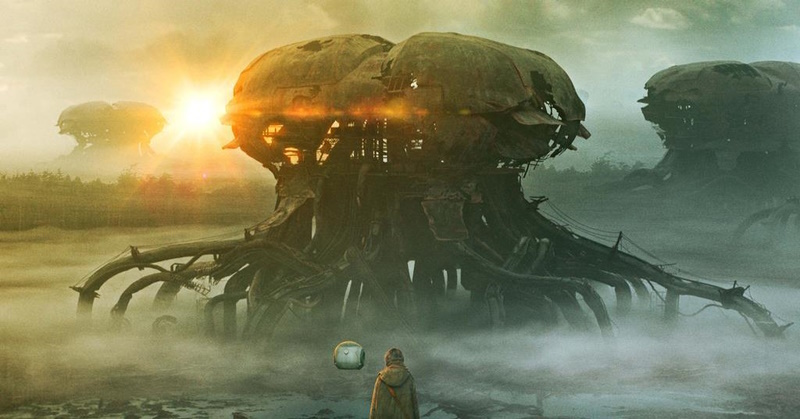
In VESPER, civilization has collapsed due to environmental catastrophe, resulting in humans struggling to survive in a world filled with parasitic and poisonous flora. Despite the plotting being stretched to the breaking point, it’s a remarkable film for its fantastic world building and strong characters. I liked this one quite a bit.
I’ve always been fascinated by the idea of an apocalypse caused by a radical ecological transformation resulting in humans no longer being at the top of the food chain. In VESPER, humanity resorted to using genetically engineered organisms in an attempt to save itself from climate disaster. Unfortunately, the organisms ran amok and displaced most of the flora while consuming all of the animals and most of the humans. In this depopulated world overrun with monstrous plants and insects, most of the survivors eke out a living in small communities, while a lucky privileged few live in advanced communities called Citadels, where they started genetically engineered themselves to live forever. Each year, the Citadels sell seeds to the people outside, which enables them to grow enough food to survive, but the seeds expire at the end of the growing season, keeping them dependent and selling their blood that is used for life extension.
It’s an utterly ruthless world where everything uses or outright consumes everything else, a status quo that seems impossible to change. That doesn’t stop 13-year-old Vesper from imagining something better. Though a child, she forages for food, pulls together power to keep a machine running that in turn keeps her father alive, craves the love of her missing mother, and does her own genetic engineering projects. When a mysterious stranger arrives, she believes she can get a better life. But the place the stranger came from and the local chief will fight her.
The trailer suggested the story would be about a journey, but that’s only a small part of it. Most of VESPER deals with the girl fighting to keep her hope alive, in particular against the local chief, who makes a fantastic villain. He doesn’t want things to change, as in the status quo, he is in control of the world as he understands it. He is what she will become if she surrenders hope that things can change for the better, which makes him such a great antagonist. He’s monstrous, but he came by it honestly, informed by a rational worldview.
The last act kind of breaks down in how far it made sense to me, but the ending is pretty clear in its intentions, and by then, I’d gotten so hooked on this fascinating, exotic, and harsh world that I was good with it. Overall, I liked this one a ton. It’s imaginative, affecting, and for its budget, it created an extraordinary world that felt both bizarre and real, lived in by characters who are the product of it and must make their way within its rules.
Leave a Reply